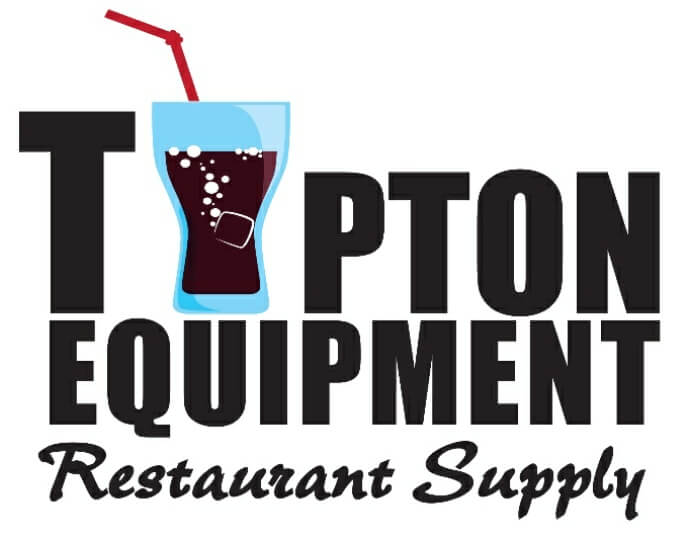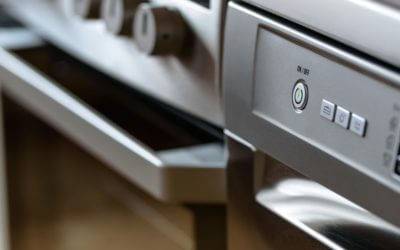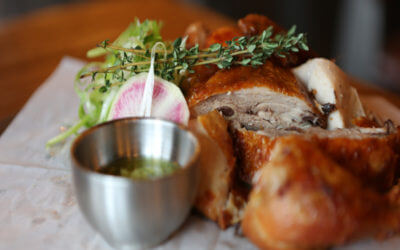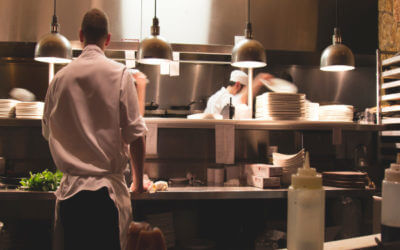Choosing the Right Sink for Your Restaurant
January 21, 2019There are many, many pieces of kitchen equipment that are vital but often taken for granted. The kitchen sink is one of them.
This workhorse of the back of the house handles a lot of jobs. Sinks give you running water as well as a place to wash either food or dishes. Generally, you need more than one in your restaurant – for instance, you might have a triple-sink wash station and a prep sink.
If it’s time to buy a new sink or replace an old one, you may wonder what your options are. This guide will help you find the right unit for you!
What is the Sink Going to Be Used For?
The first consideration when you look at your options is knowing how this particular sink will be used. If you’re setting up a new restaurant, you’ll need several types, but in most cases, you’re replacing or upgrading only one unit.
Different sinks in your kitchen include:
- Triple-sink wash station
- Prep sink
- Hand washing sink
- Soaking sink
- Floor-mounted mop sink
- Commercial bar sink
As you can see, there is a wide variety within this humble piece of kitchen equipment. Make sure you know what you need before you look at options.
Look at Both New and Used
High-quality sinks are available both brand new and used. Of course, you don’t want to choose a sink that’s in poor condition, has leaking issues, or is otherwise unsuitable. But there are a variety of excellent high-quality used units available.
If you are starting fresh or replacing a broken unit, you may not have the money for a brand new model right now. Don’t be shy about getting an excellently used sink.
Consider Water-Saving Models
In a commercial kitchen, it’s expected that you will use a lot of water. That doesn’t mean that you have to choose wasteful kitchen equipment, though!
Faucets are a perfect example of the reality that “more is not always better.” Low-flow faucets can save you thousands on utility costs without reducing the quality of work you produce. Your staff can still work quickly and effectively.
A lower-flow faucet also helps reduce risk in your kitchen. You won’t have as much splashing, which cuts down on wet floors and reduces the chance of cross-contamination.
Obey the Laws & Code Requirements
You already know that there are a lot of rules that must be followed if your kitchen is going to pass inspections. These rules apply to your sinks as well.
For instance, you may have to have a three-compartment sink even if you use an industrial dishwasher. This can be used to wash, rinse, and sanitize dishes and equipment in case your dishwasher ever stops working. It’s a useful backup to have!
You are also required to have a working handwashing sink at all times. Don’t let your staff use a food or dish sink to wash their hands!
Finally, make sure there’s enough space in your dishwashing area to keep dirty dishes separate and distinct from clean ones. If you skimp on space for this vital kitchen equipment, you could end up with code violations.
Get the Kitchen Equipment You Need Today
Are you in need of a new or used sink? Whether you’re renovating, replacing an old unit, or working with a new space, we’re here to help.
We’ve been helping Little Rock restaurants get the deals they need on kitchen equipment for many years, and we’d love to serve you too. Contact us for more information today!
5 Things Every Restaurant Owner Should Do Before Buying Used Kitchen Equipment
Equipping your restaurant properly can cost a lot of money, so buying used kitchen equipment is the go-to choice for many restaurateurs. Buying used kitchen equipment for a restaurant is a bit different than buying used equipment for your home, however. You will...
Top Restaurant Technology Trends in 2018
When looking to buy restaurant supplies, you want to be on the leading edge of technology trends. This will keep your kitchen running smoothly. Let’s take a look at some of the most recent trends in restaurant supplies technology. 1. New Payment Options Who would...
5 Different Ice Shapes and Why You Should Care About Them
Ice makers are very popular in the restaurant and foodservice community because they eliminate the need to buy ice every day. And of course, adding an ice maker to your collection of foodservice equipment means you will always have ice on hand when you need it. An...
Pulping and Grinding: A Starter’s Guide to Reducing Commercial Food Waste Costs
For most restaurant owners and managers, the expenses involved in making meals are always under careful consideration. Water is needed to prepare, cook and wash food; power is necessary for food prep, cooking and cooling, and so on. However, how many of us consider...
Choosing the Right Milk Cooler: Cold Wall or Forced Air?
In a restaurant, milk is an essential to have on hand for coffee and other café-style beverages, for serving with kids’ meals, and as a key ingredient in many recipes. Keeping your milk properly chilled can be difficult without the proper restaurant equipment....
How to Choose Your Next Commercial Meat Smoker
The movies that connect with us on a personal level are the ones that linger in our memories forever. Anyone who has used a commercial meat smoker knows that they have a huge influence on the taste of a meal. You need to have just the right kitchen equipment to get a...
Are High Speed Ovens Too Good to be True?
You might have heard a few of the bold claims that foodservice equipment manufacturers have been making about high speed ovens, but they can’t be possible, right? Cooking three times as faster as regular ovens? Five times as fast? Fifteen times as fast? It may seem...
Choosing the Right Food Storage Containers for Your Restaurant
Choosing the right kitchen supplies will make a difference in your restaurant. Whether it is heavy duty kitchen equipment or food storage containers, each piece of equipment plays its own important role. Today, we are going to talk about how to choose the right food...
Tipton’s Guide to Perfect Poultry Trussing
Do you ever truss birds in your commercial kitchen? Trussing is a fantastic cooking technique because it makes poultry cook faster, look more attractive and taste better. If your commercial kitchen prepares poultry, you don’t want to miss these trussing tips. Trussing...
How to Eliminate Excess Condensation in Your Kitchen
Is your commercial kitchen getting steamy? If so, you could have more than just an uncomfortable working environment on your hands. Excess moisture in your commercial kitchen can result in the corrosion of equipment, the development of mold, and even damage to your...
The DIY Guide to Your Restaurant’s Own Garden
Stocking your restaurant supply with your own home-grown herbs and produce can truly bring your dishes to life. When it comes to food, everyone knows there’s nothing like homemade and home-grown. Having your own culinary garden, however large or small, can help you...
5 Reasons a Meat Grinder Will Set Your Burgers Apart
The more you do to prepare your foods in-house with the right kitchen equipment, the fresher and more flavorful your dishes become. There are all sorts of restaurants offering fast-food style burgers, but some diners are looking for the real deal. A fresh, juicy...
Pest Preventions to Implement in Your Commercial Kitchen
Restaurant pests: it’s something that few people want to think about. Like it or not, pest management is an essential consideration for every commercial kitchen. Offering food, shelter and water, the unprepared commercial kitchen naturally provides everything pests...
Choosing the Right Material for Your Cooking Equipment
Kitchens are very unique to their chef. Just like a car mechanic has a toolbox unique to them, so is the cooking equipment in a kitchen. And over time, the same cooking equipment become a natural extension of the chef. What tools are you using in your kitchen? It...
Kitchen Hacks for Your Home
Some people are naturally good at certain skills. We all know someone who is naturally book smart, athletic, or musically inclined. What makes you jealous of them is how easy they make tasks seem compared to you. One skill might be cooking. Your dream may not be...















